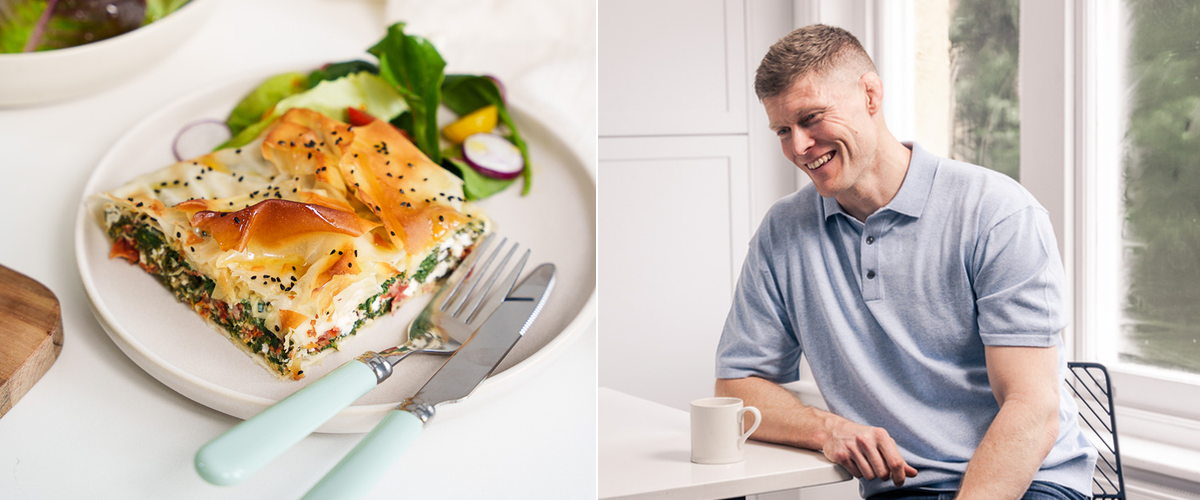5 ways to beat the winter blues
Seasonal Affective Disorder affects around 2 million people in the UK. And while we can't make winter disappear, we can give you some tips for beating the blues

Like its predecessors, 2022 was a tough year for many people.
But at the dawn of a new year, January brings with it positivity and plenty of promise.
As we move through the winter months, however, the winter blues – otherwise known as Seasonal Affective Disorder (SAD) – can start to creep in.
SAD has been described as a “winter depression” that occurs annually during the winter months.
While its cause is still debated, low vitamin D levels and lower levels of melatonin are a few suggestions for the onset of SAD over the darker season.
Symptoms are similar to that of depression and include persistent low mood, lethargy and irritability.
The good news is that there are plenty of tips and tricks that can help to combat the winter blues, as well as treatments depending on the severity of the symptoms.
Here are some suggestions.
Get active
Described as a “miracle cure” by the NHS – the benefits of exercise are vast.
It’s something that everyone can do to improve their health; whether it be little or a lot, you’re guaranteed to feel the benefits.
To combat SAD, the NHS recommends exercising outside in as much daylight as possible.
This could be something as simple as a gentle stretch or a midday walk.
“Exercise release endorphins – chemicals that help us to feel good,” explains rugby legend and Vitality ambassador, Jonny Wilkinson.
“It also gets the body moving, the blood pumping and helps to avoid stagnancy. Completing goals and challenging limits are small victories that help us build momentum and a sense of self-worth.”
However, we know it can be difficult to be motivated to get regular exercise in the winter months.
We recently provided some inspiration on how to get active in the winter months and why it’s so good for our mental health.
How your diet can help
Good health is achieved through a balanced diet. This doesn’t just mean eating a plethora of foods, but also in the right proportions.
The Associations of UK Dieticians recommends eating regular meals to help combat depression, along with a healthy portion of protein at each meal, due to its high tryptophan content – an essential amino acid needed to make proteins.
Sources include fish, poultry and eggs.
Vegetarians and vegans should opt for leafy green vegetables and pulses.
Meanwhile, recommendation number one from The Eatwell Guide for a balanced diet is to get five portions of fruit and vegetable every day.
Adding more vegetables to your favourite meals is one way to ensure you’re hitting the recommended allowance. Or swap out one of your less healthy snacks for a piece of fruit.
A nutritious diet safeguards your mental wellbeing, it can improve your mood, boost your energy levels and help you think more clearly, according to the charity Mind.
Meanwhile, Vitality’s Head Mental Health and Wellbeing, Belinda Sidhu, says that foods that are rich in vitamin D and B can help with energy levels.
Light therapy
In an effort to simulate sunlight exposure, light therapy is becoming an increasingly popular method to counter winter blues.
The act of light therapy itself involves sitting by a specific type of lamp for around 30 minutes to an hour, giving the illusion of more natural light throughout the shorter days.
Studies have found that using light therapy it can effectively adjust users’ circadian rhythm, which improves our sleep.
These lights come in a number of different forms, such as desk lights, screens and clocks.
While it’s a compelling idea, the National Institute for Health and Care Excellence (NICE) is yet to determined light therapy’s effectiveness.
For more information, visit the NHS website here.
Mindfulness and meditation
As mentioned above, theories around the onset of SAD come from a higher production of melatonin.
This natural hormone is produced by the brain’s pineal gland and controls the sleep cycle.
The body begins to produce melatonin when it gets dark, meaning it is produced for long in the winter months, and can disrupt our circadian rhythm.
There is some evidence to show that meditation can be used as an effective tool to overcome SAD.
Meditating helps to increase the body’s serotonin levels, which modulates melatonin to a healthy level. In turn, this can help change your thoughts around negative thinking, a common symptom on SAD.
Mindfulness is another practice that can be beneficial in combatting SAD. Belinda Sidhu, Vitality’s Head of Mental Health and Wellbeing, recommends grounding.
“One way of doing this is the 5-4-3-2-1 method of using your senses,” she explains.
“Think about five things that you can see right now, four things that you can touch, three things that you can hear, two things you can smell and one thing you can taste.”
If you are a member of Vitality with qualifying health insurance and life insurance you could get 12 months membership to Headspace on us.
All you need to do is log into Member Zone for more details.
Speak to someone
A problem shared is a problem halved, as the saying goes, and it’s been proven to an effective one, too.
Research by Age UK found that around one in three adults share their worries and 36% feel better as a result.
Meanwhile, Wilkinson says that, for him, speaking out is how he moves towards his goals.
“When you feel like you’re overcome from the outside, it’s an opportunity to realise what you need to let go of in order to grow and face those challenges,” he tells Vitality.
‘Brew Monday’, is also one way that people are reframing ‘Blue Monday’, whereby people grab a hot drink and have a chat with someone, in order to ask how they’re feeling about their mental health.
But for those that are struggling with more serious forms of SAD, counselling can be a very positive form of treatment.
Health insurance members with Vitality can get access to eight online or face-to-face Talking Therapy sessions per plan year, which includes sessions with a trained counsellor and cognitive behavioural therapy.
The NHS also offers psychological therapies without GP referral.
Meanwhile, more severe cases of SAD might call for antidepressants as a form of treatment, however, this should be discussed with your GP.
At Vitality, we know that Seasonal Affective Disorder (SAD) can have a significant impact on our mental health, particularly during the winter months.
As a Vitality member with a qualifying health insurance or life insurance plan, you can receive mental health support through a range of partner brands.
Log into Member Zone to find out more on how to support your mental health.
Recent articles

More than a parkrun: ‘It’s all about the community’
parkrun has given Mark more than he could have ever imagined – not least a budding community that he can rely on through the good and the bad

Eat your greens! 3 spinach recipes to enjoy this spring
Spinach is in season and our resident nutritionist, James Hudson, has rustled up 3 family-favourite recipes for you to enjoy this spring

How to become the perfect workout buddy
With group running found to have the same impact on mental health as a course of anti-depressants, there’s never been a better time to enjoy the benefits of social exercise
